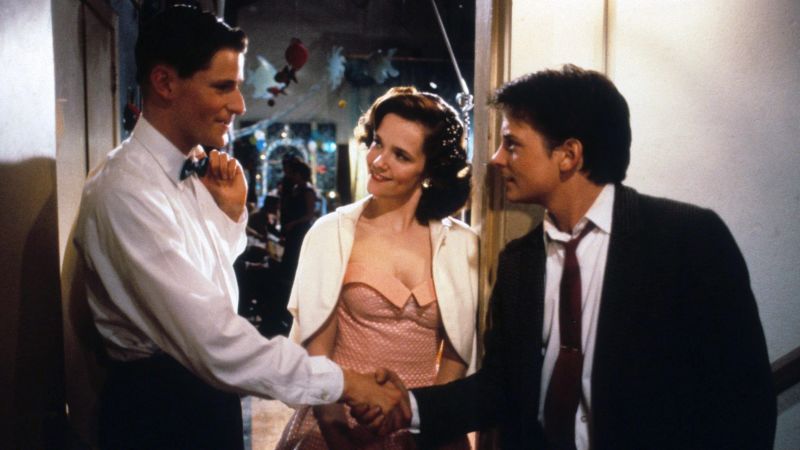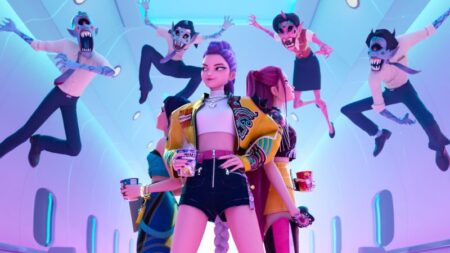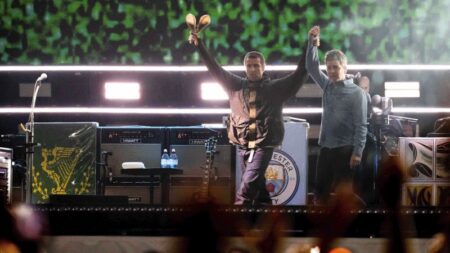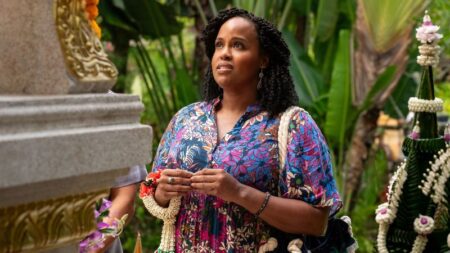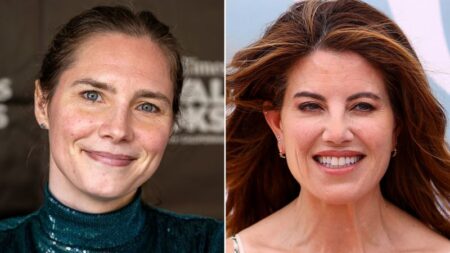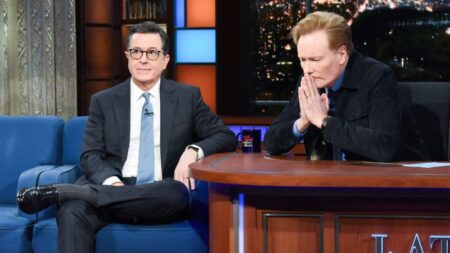The iconic film “Back to the Future” remains a beloved classic, four decades after Marty McFly first ventured through time in a modified DeLorean. As the anniversary of this cinematic gem approaches, one of its leading stars, Lea Thompson, who portrayed Lorraine McFly, took a moment to reflect on the film’s lasting impact during a recent interview with People magazine.
In this candid discussion, Thompson shared insights regarding her experience on set and the enduring appeal of the beloved film. When asked about her favorite installment of the trilogy, Thompson expressed a clear preference for the original film. She explained, “For me, it’s ‘Back to the Future: 1’ because it’s just a perfect screenplay. And as a director, I can appreciate the conciseness of it.” This remark underscores not only her fondness for the film but also highlights her professional perspective as an actress turned director.
Thompson elaborated on her views concerning the sequels, indicating that “Back to the Future: 2” and “Back to the Future: 3″ were initially intended to function as one longer narrative. She pointed out, “So, it wasn’t constructed in the same way as ‘Back to the Future’ was. So I just think it’s a perfect screenplay.” This thoughtful analysis underscores the craftsmanship behind the script, written by Robert Zemeckis and Bob Gale, and directed by Zemeckis with the notable production support of Steven Spielberg as executive producer.
As Thompson reminisced about the production of the first film, she revealed that the thought of a sequel was far from her mind at the time. Reflecting on the era, she mentioned, “When we made ‘Back to the Future,’ we didn’t even think we were going to make a sequel.” The actress clarified, “There was no sequel deal. There was no concept of that,” further emphasizing the surprising evolution of the franchise. The spontaneity with which the original film was created has often been a talking point among fans who remain captivated by the film’s ingenious writing and storytelling.
The film, originally released in theaters on July 3, 1985, has cultivated a multi-generational audience that bonds over its timeless themes and humor. Thompson indicated the joy she feels when observing diverse audiences at film-related events, stating, “It’s really a joy when we look out in the audience when we’re doing one of those talkbacks and half the people weren’t even born when the movie came out.” This phenomenon not only highlights the film’s enduring quality but also reflects the cultural significance it continues to hold in society today.
As she spoke, it became evident that Thompson is not only proud of her role in “Back to the Future,” but also thrilled by the film’s ability to transcend time and connect with younger audiences. The intergenerational appeal of the movie serves as a testament to its well-crafted narrative and the relatable experiences of its characters. Her remarks remind us of the magic that cinema can create—bridging the gap between generations, bringing people together, and igniting nostalgia and passion within audiences old and new.
Ultimately, “Back to the Future” remains an exemplary piece of filmmaking that has left an indelible mark on the landscape of popular culture. Through Lea Thompson’s heartfelt reflections, we glimpse into the rich tapestry of memories surrounding the film’s production, the marvel of storytelling, and its ability to inspire and entertain across various demographics. As fans continue to celebrate its legacy, it’s clear that the DeLorean and its time-traveling adventures will forever be etched in the annals of cinematic history.





